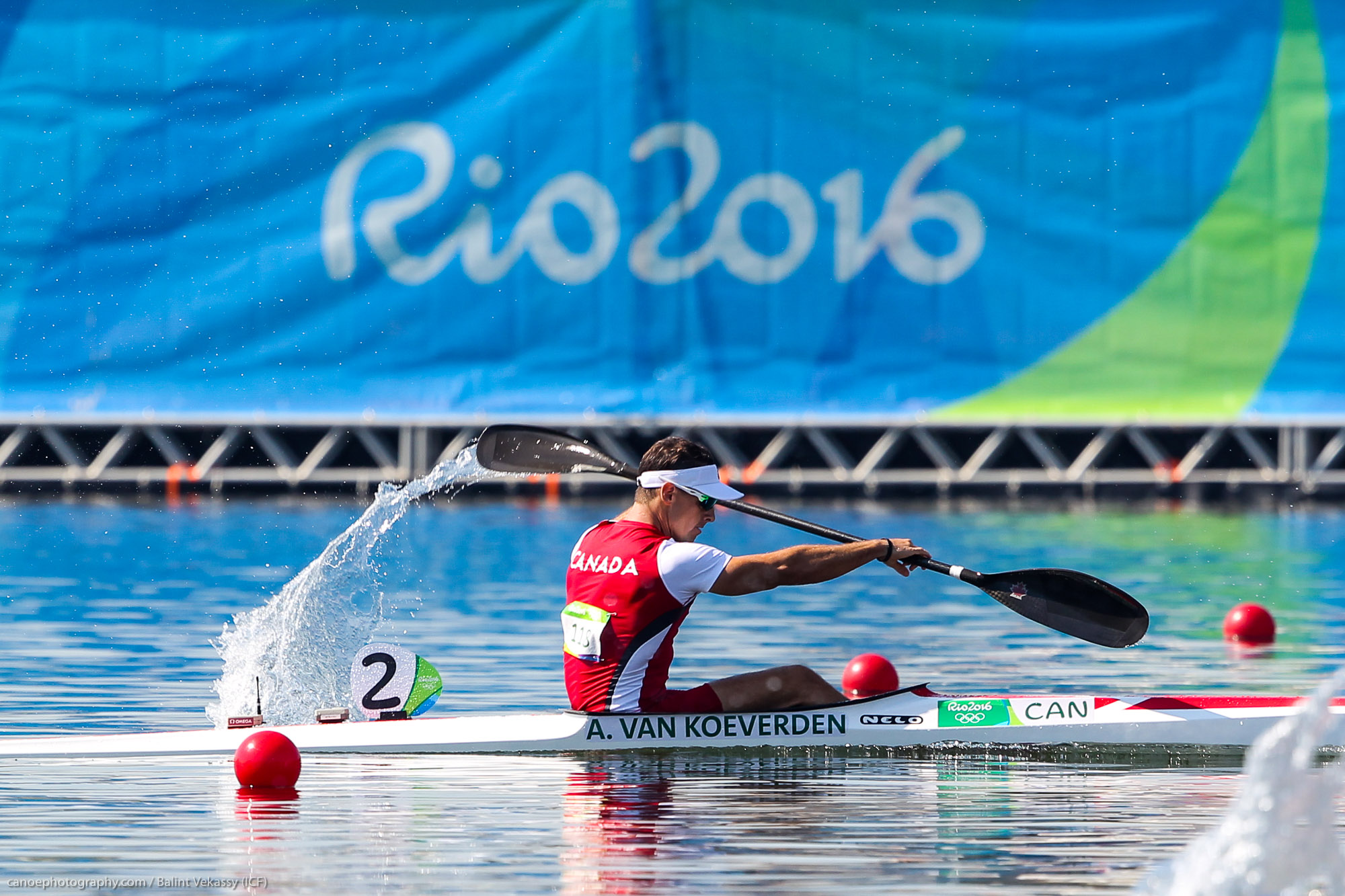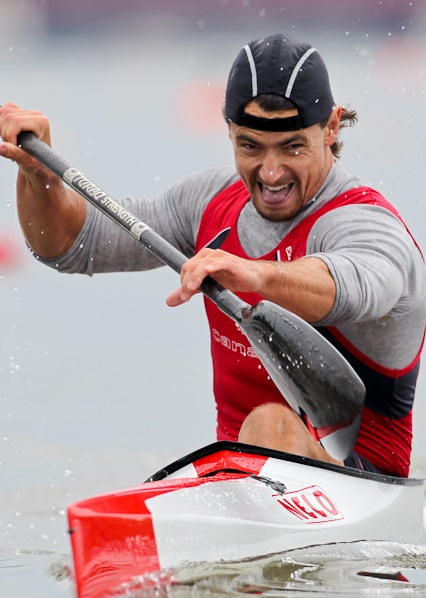::ALL GOOD THINGS...::
 Wednesday, August 24, 2016
Wednesday, August 24, 2016 


 Wednesday, August 24, 2016
Wednesday, August 24, 2016 
 Friday, August 12, 2016
Friday, August 12, 2016
 Sunday, September 13, 2015
Sunday, September 13, 2015
 Tuesday, July 8, 2014
Tuesday, July 8, 2014 I realized that the CBC Olympics site that I blogged on during the Sochi Games isn't up anymore, so I thought I'd re-post the blogs that don't exist anywhere else on the internet anymore!

THE PAIN TRAIN
The Pain Train
Of all the attributes that differ sport from sport, I believe the most significant distinguishing factor, is pain.
My objective is not to compare sports on their merits of anguish. I detest that arbitrary discussion; “which sport is the hardest?” or “Who is a better athlete, a 100m sprinter, or a freestyle swimmer”. I don’t like questions that don’t have answers, I prefer to analyze the relevant differences, and consider what unique role pain plays in different sports.
Every Olympic sport is hard. They all take immense skill, effort, practice and determination. But they don’t all inflict pain, and the type of pain they cause is as distinct as the event.
Endurance sport has a special relationship with pain. It’s in the name. The whole idea of cross-country skiing is predicated on training your body to endure as much pain as possible, and then manage to keep skiing fast while you inflict a maximal dose during a race.
That’s the game; maximum pain, everyday in training. This causes a training effect known as enzymatic up-regulation. The enzymes in your muscles responsible for turning all that glucose and oxygen stuff into power and energy become more plentiful and efficient. Endurance athletes not only have a higher capacity to create lactic acid (a necessary evil unfortunately), but they’re also better at clearing it out of their muscles, and better at tolerating high amounts as well.
If you’ve been watching the Olympics, then you’ve probably seen a few cross-country skiers and biathletes embracing the white stuff in a heaving pile of torment only meters past the line.
It’s not soccer. There’s no foul-call. They are just completely empty. Their throats are raw from hauling as much oxygen as possible into their barrel-like lungs, which are heavy and hot like molten iron. Their hearts are pounding on the inside of their ribcage like a subwoofer in a high school parking lot. I haven’t even started to think about their legs, their backs and triceps from poling madly, over 100 times per minute in the final stretches of the race. Cross-country is as tough as it gets from a pain perspective. It’s full-body and mostly uphill. In a word: ouch!
The result of falling down after a race is the same as what happens when you faint. Someone faints because their brain isn’t getting enough blood. Putting your heart and brain at the same level means that your pumper isn’t fighting gravity anymore. When skiers cross the finish line in a world of hurt, collapsing into a suffering mess of spandex accomplishes that same goal. And misery loves company, so why not lie down with all your friends on the snow and experience that euphoric excruciation en masse?
I watched the cross-country team sprint today. It’s two skiers per team; they do 3 legs each, head-to-head with 9 other countries. They tag off with a touch, and wait for their partners to return, and retrace their steps. While they wait the athletes jog lightly, shake their legs, some get massages and others hop on a stationary bike to keep the blood flowing, clearing poisonous lactic acid and CO2 from their muscles.
For the women, the course interval is about two and a half minutes, for the men it’s a touch less than four minutes. So the work-rest ratio is equal, just enough rest to go 100% again, and then once more, for around 16minutes for the women and 24minutes for the men.
Sound fun? Only cross-country skiers would call that a “sprint”.
For sports on the other side of the pain continuum, pain isn’t the main objective, it’s actually the thing they’re trying hardest to avoid experiencing. If an athlete in freestyle aerials skiing experiences pain, it’s almost certainly due to trauma. A fall or a tear owed to a slight miscalculation in the air or at the landing. They screwed up. Put simply, pain in almost any sport involving tricks is to be avoided at all costs.
That’s an interesting difference. On one end of the spectrum pain is to be avoided, and on the other side experiencing maximal pain is tantamount to victory.
At the Winter Olympics, endurance sports are certainly a minority. Speed-skating and cross-country (including biathlon and Nordic-combined) are the lone-wolves of the winter games. While the summer enjoys running in distances from 400m to the marathon, cycling in myriad forms, rowing, swimming, canoe/kayak, and combinations thereof.
Wait, I’ve got some good news. These painful sports are still good for you, and fun (some may say even more so) at only moderate levels of discomfort! So get out there and up-regulate some enzymes; your heart and lungs and brain will all thank you at some point, hopefully not by fainting.
Thanks for reading. I hope it wasn’t too painful. :)
 Saturday, May 24, 2014
Saturday, May 24, 2014 This isn't junk-mail. I'm actually writing a blog. It seems as though Marshall MacLuhan was right (at least about me) when he famously said that the “blurb” would one day replace the book. Twitter has given me fewer and fewer reasons to write a blog, now that I can get my thoughts out to the world in 140 characters from my phone... I suppose my creative outlet has been stifled by that modern convenience. I’ve promised this in the past, so it’s probably best not to hold me to it – but I’m going to write more.
Since my trip to Sochi with CBC in February I’ve been back in the boat, training my heart and muscles and lungs and brain to be great at kayaking. I was in Florida for about 8 weeks, raced and won the trials in Gainesville, Georgia (in K1 1000m). Since then I’ve been in Europe, racing some world cups (Milan ITA, Racice CZE and Szeged, HUN). A track n field pal of mine told me I could “race myself into shape”, which I have been trying my best to do. I came over to Europe with no expectations, I only wanted to get back into racing K1, and focus on what I could do in my boat, in my lane. After 2.5 World Cups (I’m racing the 500m and 5000m K1s tomorrow, Sunday) I have a really clear indication of where I’m at in my training and conditioning, and I know what I need to do... MORE HARD WORK!
What inspired me to tap these keys again, however, wasn’t a burning desire to update the blogosphere on my daily goings-on over here on the continent. I wanted to write and reflect on a decision I made last week, and the concept of sacrifice.
In January 2013 I decided to stop eating meat. My choice wasn’t borne out of a need to discuss dietary needs, decisions or my personal reasoning for cutting meat out, but that was definitely one of the most significant outcomes. People LOVE talking about food. It is the new religion. For the record, I decided to stop eating land-meats. Anything with feet, basically... Or hooves, I suppose. Are hooves feet? Whatever. I was to rely on fish and dairy and legumes for my protein. It was motivated simply by having more reasons in the “No Thanks” column than in the “Yes Please” column. Reasons for yes please include “tastes good, it’s available, it’s protein, I like it...”. Reasons for no thanks were more numerous, and also more complex; “it was making my stomach hurt, it sucks for the environment, the way we treat animals that we are going to eat is atrocious and terrible, my Dad beat colon cancer and veggie diets are good for colon health, and the list goes on. Health, Enviro, Ethical... they were all good reasons to say no thanks, and eat some fish/eggs/tofu instead.
Until this week, I was sticking to it, and I insisted that it was the right thing to do.
The Eggplant in the Room...
My primary concern now that I am preparing whole-heartedly for Rio, is my performance and physical condition. As I have mentioned in previous writings, being an athlete is one of the most selfish endeavours. It is all about oneself. Of course we have opportunities to be great ambassadors and involved in our communities (and I am truly thankful for these occasions for social-penance), but at its core... focusing solely on moving MY skinny boat in fast straight lines is quite self-centred.
For that reason, I’ve often danced around questions about sacrifice. Interviewers will ask about all the sacrifices I’ve had to make as an athlete, and since I’m enjoying myself and have everything I need, I answer that I don’t feel like I’ve had to make any. But it takes a tremendous amount of time to do a sport at this level, and the commitment is very much full-time. This has left me unable (or perhaps unwilling) to pursue education beyond my undergraduate degree, a career outside sport, or much of a relationship that could one day lead to a family of my own (yes, I’m referring to romance). All this to say, yes... I’ve made a sacrifice or two to have accomplished many of my goals, and to continue pursuing the ones that lie ahead.
However, I’ve never had to sacrifice a strongly held personal conviction.
I’ve always conducted myself in training and competition with integrity to the best of my ability. I am outspoken when I feel it is important to be outspoken. Fortunately, I’ve been able to do and say mostly what I want for most of my professional sports career.
But for the first time, I feel that I need to sacrifice a deeply held personal conviction to ensure my performance is where I want it to be. Last week I started eating meat again. Of course I know and believe that it is possible to be a great athlete and a vegetarian at the same time. But for so many reasons, I’ve decided that I need it to continue to race and train at a world-class level.
My teammates and friends and family have been supremely supportive, often choosing fish and veggie meals over heartier yummier meatier ones in order to eat together. For all of those times, thanks guys... I really appreciate it.
I’m going to continue to be an (only slightly hypocritical) advocate for the environment and the treatment of animals. When I have a choice, I am going to make every effort to make one that limits my footprint, and the degree to which I am a party to the mistreatment of our furry and feathered friends.
And for the next two years or so, I’m going to continue trying to be the best kayaker I’ve ever been.
Stoked to be racing here again tomorrow! Thanks for following along! :)
